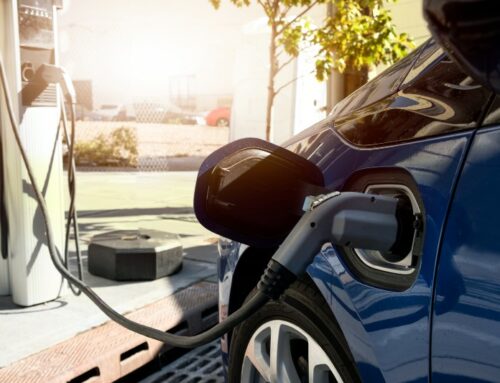THE UK new car market recorded its weakest September since 1998 ahead of the introduction of the two-plate system in 1999, according to figures from the Society of Motor Manufacturers and Traders (SMMT).
Some 215,312 cars were registered in the month, a 34.4% fall on September 2020, when pandemic restrictions were significantly curtailing economic activity. September is typically the second busiest month of the year for the industry, but with the ongoing shortage of semiconductors impacting vehicle availability, the 2021 performance was down some -44.7% on the pre-pandemic ten-year average.
However, September was the best month ever for new battery electric vehicle (BEV) uptake. With a market share of 15.2%, 32,721 BEVs joined the road in the month, reflecting the wide range of models now available and growing consumer appetite. The September performance was just over 5,000 shy of the total number registered during the whole of 2019.
Plug-in hybrid (PHEV) share also grew to 6.4%, meaning more than one in five new cars registered in September was zero-emission capable. Meanwhile, hybrid electric vehicles (HEVs) grew their overall market share from 8.0% in 2020 to 11.6%, with 24,961 registered in the month.
Mike Hawes, SMMT Chief Executive, said: “This is a desperately disappointing September and further evidence of the ongoing impact of the Covid pandemic on the sector. Despite strong demand for new vehicles over the summer, three successive months have been hit by stalled supply due to reduced semiconductor availability, especially from Asia.
“Nevertheless, manufacturers are taking every measure possible to maintain deliveries and customers can expect attractive offers on a range of new vehicles.
“Despite these challenges, the rocketing uptake of plug-in vehicles, especially battery electric cars, demonstrates the increasing demand for these new technologies. However, to meet our collective decarbonisation ambitions, we need to ensure all drivers can make the switch – not just those with private driveways – requiring a massive investment in public recharging infrastructure.”
Sue Robinson, Chief Executive of the National Franchised Dealer Association added: “Whilst September is an important month for the sector and the decline is disappointing, albeit expected, retailers continue to experience robust consumer demand with a strong used car market and increasing appetite for EVs, partly driven by the fuel issues at the end of the month.
“It is positive that the plug-in electric vehicle market continues to expand. Franchised dealers have been investing in their sites and staff training to support the transition to zero emissions and the growth of the market demonstrates it.
“As we enter the final quarter of the year, we will monitor the impact that supply constraints have on the market, with retailers continuing to play a central role in helping their customers to find the vehicle that best suits them”.
James Fairclough, Chief Executive of AA Cars noted that the traditional September boost from the arrival of new registration plates was nowhere to be seen, adding: “August’s sales figures were lacklustre, but September’s fall in sales was an out and out disappointment.
“The supply of new cars has stubbornly failed to improve. In August the number of cars leaving UK factories slumped by a further 27%, the second successive fall in output. Despite dealers’ best efforts to fulfill customer orders as quickly as possible, too often they just don’t have the vehicles to sell.
“While these supply shortages are likely to be temporary, for now they are proving frustrating for both dealers and motorists.
“One thing that is improving is sales of electric vehicles. BEVs accounted for 11% of all new car sales in August and 15% of sales in September. EVs and hybrids now account for well over a quarter of the cars made in UK factories, their highest ever level.
“For those already thinking of going electric, the sight of EV drivers breezing past long queues at service stations during September’s fuel crisis may have been a clincher.
“With demand outstripping the supply of new vehicles for sale, many motorists are choosing to focus on the second-hand market instead, where they can often get a nearly-new car for significantly less money than a new one.
“As a result the used car market is seeing a prolonged surge in interest. While there are some great deals to be had, we always recommend that an independent pre-sale vehicle inspection takes place on any second-hand car before any money changes hands, to ensure drivers can have peace of mind that there are no hidden faults which could cost them money down the line.”







Leave A Comment